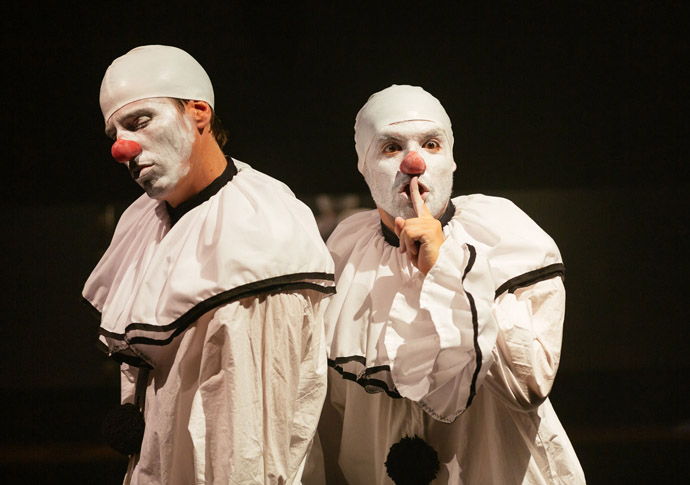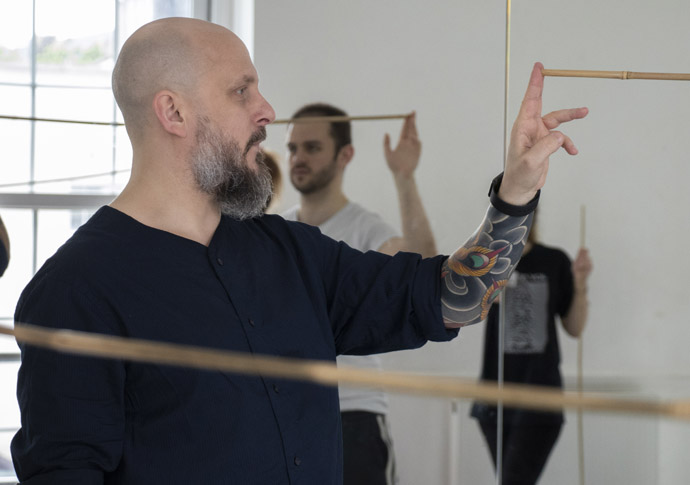
A six-month course at the Finsbury Park drama school will begin in January
CLOWNS can help us make sense of the absurdity of our lives and our politics, the artistic director of a theatre school said this week ahead of the launch of a new clowning course.
Steve Green is the artistic director of Fourth Monkey, a drama school based in Finsbury Park. In January the school is launching a special clown training programme – “because the world feels like it could do with a little bit of clown”, Mr Green said.
“In politics, our opinions can be so absurd – we all get very passionate but what’s caught up in that is the nonsense behind it. We had those debates about the shape of bananas during Brexit, we’re on our fourth prime minister in five years – there’s so much absurdity here, there’s a clown show there in itself.”
The course will be taught by Rhum and Clay Theatre Company, who are currently on tour with their show Project Dictator.
“It’s a clown show about democracy,” Mr Green said. “A lot of their work has leant into that space exploring our relationship to democracy, dictatorship and law, and how [our personal lives] intersect with that.
Mr Green, who trained under the clown John Wright, said clowning “encapsulates life’s absurdities”, adding: “It always came from a place of social comment – there’s always been a twinkle in the eye of clown work.”

Steve Green, artistic director of Fourth Monkey
Historically, clowning evolved from the Italian tradition of Commedia dell’arte, Mr Green said, where “work was created by the artistic class commenting on the upper class in Italian culture”.
“In their familiar form, clowns are there to make us smile and laugh – but they are also there to make us think, to present something to us in an absurd way that challenges our perceptions.”
On stage, clowns move from one disaster to the next, solving one problem only to be confronted with another. “You’re watching tragedy and catastrophe unfold and finding humour in that. That is powerful, fearless stuff,” Mr Green said.
Everyone has their own “clown voice”, he added, and good clowns are those who are willing to interrogate their own flaws. “It’s about finding your individual quirk – the investigation of that can be a curious thing. For example, the ‘Boss Clown’ is someone who understands they’re a bit bossy and controlling, and can find humour in that.”
Embracing absurdity allows audiences to reflect both on the tragi-comic elements of their own lives, Mr Green said, as well as the farce of politics as it plays out at a national and international scale. “It is an art that allows people to stand up and speak a little bit – not necessarily politically but from a social and economic perspective. When people have things to say, [clowning] gives them a way to express themselves,” he said.
The six-month course runs every Thursday night and is open to anyone. The drama school is offering discounts for local people, along with means-tested scholarships for those who may not be able to afford the course fees.